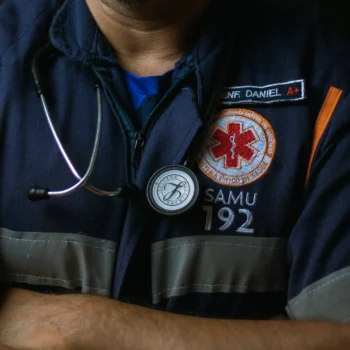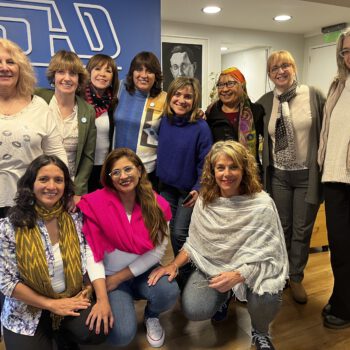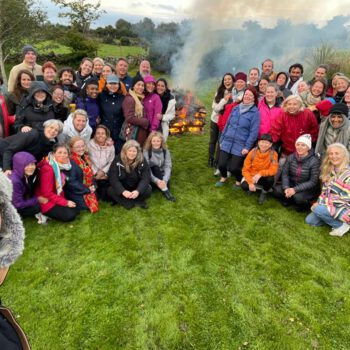An innovative Addiction and Trauma Specialist who specializes in relational trauma, Wendy is a Founding Compassionate Inquiry® Facilitator, a Level II certified Kundalini Yoga and Meditation teacher, and an International Trainer for Beyond Addiction. A Core Faculty member at LA’s Antioch University, she created the Addiction and Recovery Specialization, based on a biopsychosocial, trauma-informed, compassion-based approach to understanding and treating addictive behaviors.
This short edited excerpt of Wendy’s interview maps her personal addiction experience with hustling, busy-ness and institutionalized self-abandonment. Listen to her full interview on The Gifts of Trauma.

I’m done hustling. I don’t need to go fast. I’ve been on an intense journey of speed, busyness, and now, slowing down… When I recognized speed as an addiction, I felt its impact in my body. It definitely checked all the addictive behavior boxes.
Hustling, speeding and busyness are cultural addictions. Life in LA was a very sympathetic-dominant, hustle culture. I didn’t even get temporary relief sitting at a stoplight. I was that person scrolling my social media or responding to a text message. There was no time to stop, pause, do nothing, or just be.
When addiction is caused by relational trauma, we can heal its psychological aspects with therapy, Compassionate Inquiry® any of many evidence based interventions. But when socio-political issues are the root of the addiction’s pain and beliefs, when it’s this big, when it’s institutionalized, where do we intervene? What can I do to strengthen my parasympathetic nervous system? I can take yoga classes, practice deep breathing or meditation, but I have less control over the outcome.
Today, like when we were in the pandemic, we’re living in a mapless territory. The fear, anger and grief are real, not cognitive distortions, misperceptions or beliefs that don’t fit the facts. They actually fit. We’ve only just emerged from that trauma so this is the time for post traumatic stress to kick in. As that’s happening, we’re hit with yet another trauma. Families are facing deportation, vital government support services are being shut down, grocery prices are rising… so many points of impact.
Just as Covid was a re-traumatization of my childhood isolation, my really big feelings, not having any power or control, being all alone to figure it out… What’s happening today globally, particularly for many of my American clients, is a re-traumatization. When some people look at the news and see terrible things happening, they freeze. What’s happening politically is magnified and experienced more intenseling by those of us who have a history of trauma.. It brings back other times where they were bullied, dismissed, when their needs didn’t matter, they had nowhere to go, or they couldn’t do anything to impact the problem.
I’ve been noticing people’s fight, flight or freeze responses. Leaving is a flight response; there are so many ways to mentally dissociate and physically run. Some people in Congress, some judges and the people marching, they’re fighting. I’m not a fighter. I’m a freezer, a dissociator. I’ll check-out-and-get-through-it, however we get through it. For me, it’s, ‘don’t freeze!’ But how do I stay engaged and present in this moment, when I want to check out?
This question comes up in my work with myself, and my clients. How to stay present in this moment. If you’re a parent, be the best parent you can be for your kids. I have several projects that keep me focused on what I can do. I plan to stay, I don’t plan to fight. And I’m not freezing.
Moving to Santa Fe was both disruptive and necessary. It was absolutely time—and—a big adjustment to my nervous system. In LA, I started my mornings at a daily yoga class. During the pandemic, everything shut down. There were no more morning yoga classes and my university went entirely remote, so I was free to go.
But leaving Los Angeles’ hustle culture triggered panic attacks, anxiety and insomnia that required medication. As a ‘speed addict,’ when I get on something I just go. For example, I completed Level II Kundalini in record time with no space to integrate. I used to say, “That’s the way I roll.” As if it were a badge of honor.
Is there a downside to being a ‘speed addict?’ Yes’ I drive a fast car and I love driving fast, even if there’s nowhere I need to be and I’m not running late. One day I was just speeding, and when the lights went on behind me I thought, ‘surely they’re not pulling me over?’ I was going 100 MPH and didn’t realize it, so I got a ticket for going 25 MPH over the limit. Rather than paying the ticket, I went to traffic court on-line, and because my record is clean, the judge fined me $10 and 90 days probation. As long as I don’t break any laws, this will all be erased from my record. But sure enough, the next time I got in my car I started speeding again, because I’m wired that way. “Wow!” I thought,”There I go again, racing down the road to get somewhere.”
This tracks back to my childhood. We always showed up late. Even when we had a flight to catch, my little sister, my mom and I would have to run through the airport. For my entire life my mom was hustling, speeding, busy and not present. So I had to stay on top of the itinerary of life. Even as an adult, when I graduated from my doctoral program, I had to be at the graduation at a certain time for the class photo. It was important to me to be in the photo with my classmates. But once again, my mom was taking her time, so I had to be the person who kept track of time. I’m even that person when I’m facilitating Compassionate Inquiry® training. Everyone sets their timers for 90 seconds to check in, because it’s a discipline and structure I’ve created for myself, for safety.
When I was growing up, I didn’t realize how unsafe I felt because of all of the fast hustling. In a major PTSD dream, I saw myself as an adult, running through an airport, lost and trying to find someone to help me. I eventually made it to the gate at the last minute and there was my mom, just standing there, not excited to see me. It was so representative, and also so helpful, because it put me in touch with the frantic, terrified truth of a child who had to hustle and keep up. I continue to unpack the pain wondering: Was she just too busy? Does she really not love me? Do I really not matter? Are other things more important? This is so aligned with my drive to stay busy, to go fast, and the underlying fear.If we go back to the function of an addictive behavior, it gives us temporary pleasure or relief from the fear of… My fear goes back to having to be self-sufficient, having to take care of myself, not having the luxury to relax…it has negative consequences… I couldn’t take it easy, pause or slow down because I had to do more. I was constantly chasing the dangling carrot… To hear more of Wendy’s story, click the link below and listen to her episode.
The Gifts of Trauma is a weekly podcast that features personal stories of trauma, transformation, healing, and the gifts revealed on the path to authenticity. Listen to the interview, and if you like it, please subscribe, leave a rating or review, and share it with others in your community.



